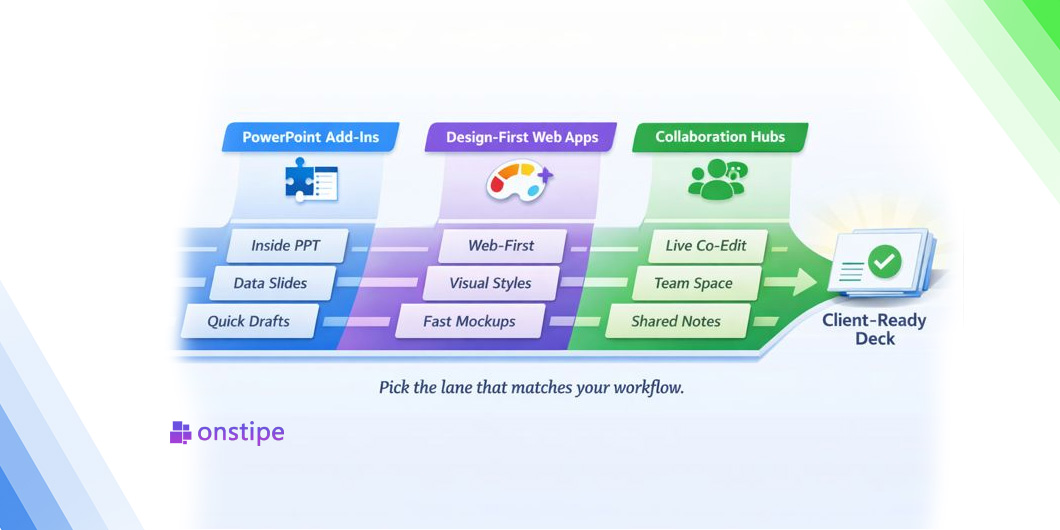Growth is supposed to feel exciting. However, when your business picks up speed, things can become messy. What used to work suddenly feels clunky. Your team is juggling more clients, more files, more data, more everything. But the systems in place can’t keep up.
Did you know that nearly 7 out of 10 businesses report that outdated or poorly matched software is one of the top reasons they lose productivity? It’s a frustrating reality, especially when your team is working hard and still falling behind.
If you’ve been trying to grow with tools that were never designed for your industry, you’re not setting yourself up to scale. You’re setting yourself up to stall.
This article breaks down why specialized tools are no longer optional and how they directly impact the results you care about most.
Generic Tools Don’t Scale Well
At first, using a popular tool that claims to work for every industry feels like a safe bet. You get decent features, decent support, and enough flexibility to get started. However, as your business grows, those generic solutions begin to show their limitations.
You might notice your workflows getting messier. Reports take longer to compile. Clients wait longer for updates. It’s not that your team isn’t working hard. They’re just working around a tool that wasn’t made for what you do.
There’s a point where good enough stops being good enough. That’s the moment you need to stop adjusting your process to fit a tool and start finding one that’s actually built for your world.
Why Industry-Specific Software Works Better
The beauty of specialized software is that it understands your daily workflow. The creators understand the pain points, industry-specific language, and bottlenecks that slow you down.
Let’s take personal injury law as an example. A firm in that space doesn’t need a general CRM or a basic project tracker. They need something that handles client intake, case tracking, medical records, settlement negotiations, and court deadlines all under one roof. Trying to manage all of that using generic software is like forcing puzzle pieces together that clearly don’t match.
That’s where a comprehensive personal injury law software steps in. It’s tailored to the legal world, especially the high-stakes, detail-heavy work of injury law. Instead of bouncing between tools, your team can focus on clients, deadlines, and outcomes. No digging through folders for a medical report. No losing track of a client call. Everything is exactly where it should be, ready when you need it.
That kind of precision saves time. And when time isn’t wasted, real results follow.
Better Tools Bring Better Focus
Yes, you move faster with the right tool. But it’s not just about speed. It’s about clarity. Specialized tools help your team see exactly what’s happening and what needs attention.
You get better insights because the tool understands your industry metrics. You track the numbers that matter. You stay on top of key milestones. And because the software speaks your language, the learning curve is smaller. That means less time training, more time doing.
More importantly, specialized tools reduce human error. Fewer steps. Cleaner handoffs. Smarter workflows. And when you work in a field where missing a deadline can cost someone their case, those details aren’t small. They’re everything.
Help Your Team Do Their Best Work
There’s real value in giving your team tools that support their strengths. People didn’t join your business to fight clunky interfaces or figure out where files went. They came to do meaningful work. To solve real problems. To help clients or customers in a way that makes a difference.
When you give them a tool designed for what they do, everything falls into place. Tasks get done faster. Communication gets easier. Results get better.
You’ll also notice a shift in morale. People enjoy their work more when they feel supported. Burnout fades when systems actually make sense.
What to Look for in a Specialized Tool
Not all niche tools are equal. Some are just slightly customized versions of broad software. Others are truly built from the ground up for specific industries.
If you’re evaluating options, look for these things:
- Industry-specific features: You shouldn’t have to build workarounds. The features should reflect your real daily tasks
- Reliable automation: The tool should take repetitive tasks off your plate, not add to them
- Clean interface: Specialized doesn’t mean complicated. The best tools are intuitive
- Support from people who get it: When you have questions, you want answers from someone who knows your industry
- Scalability: Choose something that grows with you, not something you’ll outgrow in a year
Take time to explore, ask questions, and see demos. Trust your team’s feedback too. They’ll know right away whether the tool is a good fit or not.
Final Thoughts
Digital growth shouldn’t feel like a struggle. It should feel natural, focused, and steady. If the tools you’re using don’t help with that, it’s worth rethinking them. Sometimes the smartest move isn’t trying harder. It’s choosing better. And that often means opting for something that truly suits your space. Specialized tools won’t fix everything. But they’ll get the barriers out of your way so you can focus on the real work. The kind that brings results.







